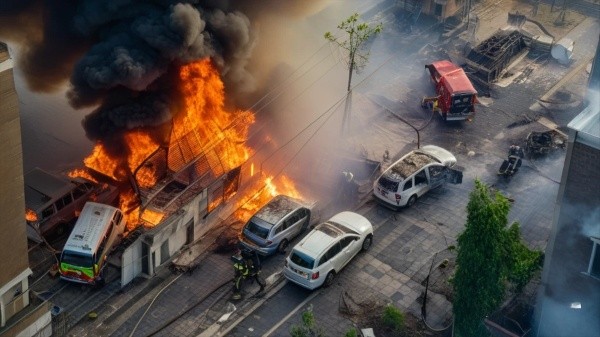Iran’s Unyielding Stance Against Israeli Aggression: A Complex Geopolitical Struggle
In the eyes of many, the Islamic Republic remains the last bastion in the Muslim world against unchecked Israeli aggression
Loading...

The violence has led even common people to demand the prime minister’s exit.
In Bangladesh, the ongoing protests have transcended the initial issue of the government job quota system. What began as a demonstration against what students and youth perceive as an unfair policy favoring a specific group has escalated due to the government's use of unprecedented violence against the protestors. The demands put forth by the students have expanded to encompass a range of issues beyond the quota system.
The list of demands circulated by the students includes the following key points:
1) The prime minister must accept responsibility for the mass killings of students and publicly apologize.
2) The home minister and the road, transport, and bridges minister must resign from their positions and the party.
3) Police officers present at the sites of student killings must be dismissed.
4) Vice Chancellors of select universities must resign.
5) The perpetrators of attacks on students as well as those who incited violence must be arrested.
6) Families of the deceased and injured must be compensated.
7) The pro-government student wing, Bangladesh Chhatra League (BCL), must be banned from student politics and a student union established.
8) All educational institutions and halls of residences must be reopened.
9) Guarantees must be provided to prevent academic or administrative harassment of protesters.
The demand for the prime minister to publicly apologize for her disparaging comments about the protesters is seen as a significant point of contention. It is noted that the prime minister is not known for making apologies, regardless of the numerous allegations against her, including election rigging, high levels of corruption, and the violent suppression of dissent. The reluctance to hold the prime minister accountable is attributed to the perceived lack of courage within the negotiating camp, as well as the political implications of such actions within the ruling party.
The significance of various demands, such as the resignation of ministers, vice chancellors, and the banning of BCL, is discussed. The role of these entities in maintaining control and exerting influence, as well as the potential implications of their removal, is highlighted. Additionally, the challenges of obtaining accurate information and disseminating news due to internet shutdowns and restrictions on connectivity are described, along with reports of widespread casualties and disappearances.
The atmosphere of fear and intimidation created by the government's response to the protests is underscored, including the use of force, curfews, and the suppression of information. Reports of violent responses to government-led brutality, as well as the solidarity expressed by the general public with the protesting students, are also emphasized.
Overall, the piece provides a comprehensive overview of the evolving situation in Bangladesh, shedding light on the multifaceted nature of the protests and the complex dynamics at play within the political landscape. The urgent calls for change and accountability resonate throughout the narrative, reflecting the deep-seated grievances and the growing momentum of the protest movement.
BMM - MBA
In the eyes of many, the Islamic Republic remains the last bastion in the Muslim world against unchecked Israeli aggression
Analysts say US push for Gaza post-war phase is ‘unrealistic’ as Israel vows to continue fighting in besieged territory.
And recent Iraqi history can tell us how.
